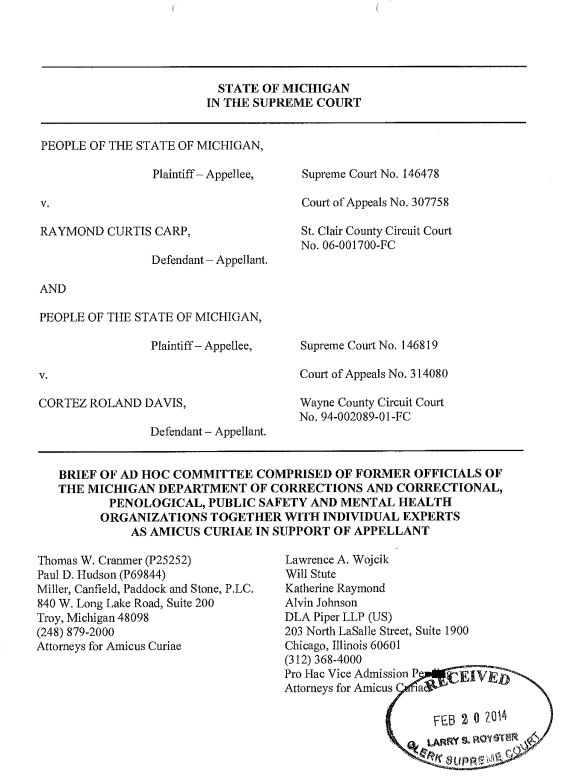
Summary of Argument
Uncontested research in developmental psychology and neuroscience continues to validate and confirm the conclusion that youth are different and less culpable than adults for their
actions, Compared to adults, children are less able to restrain their impulses and exercise self- control; less capable of considering alternative courses of action and avoiding unduly risky behaviors; and simply less capable than adults of mature judgment and decision-making, especially in the social contexts in which criminal behavior is most likely to arise. It is these signature qualities of adolescence that reduce these young people's culpability and increase their capacity for change.
The research confirms what those working in corrections and on criminal justice issues have long observed and documented — that youth are still in the process of forming coherent identities, and adolescent crime often reflects the signature and transient qualities of youth itself, rather than an entrenched bad character. Roper v Simmons, 543 US 551, 570; 125 S Ct 1183 (2005). Although some youthful offenders may commit criminal acts as adults, it is more likely that those children will mature and grow out of the behavior and characteristics that contributed to their criminal actions, becoming capable of rejoining society as productive citizens.
These profound differences between a child and an adult undermine any possible penological justification for punishing a child with a sentence that "guarantees he will die in prison without any meaningful opportunity to obtain release." Graham v Florida, 560 US 48, 79; 130 S Ct 2011, 2033 (2010). Moreover, it remains essentially impossible "even for expert psychologists to differentiate between the juvenile offender whose crime reflects unfortunate yet transient immaturity, and the rare juvenile offender whose crime reflects irreparable corruption," rendering the sentence of life without parole for a child inconsistent with the goals of corrections. Miller v Alabama, 132 S Ct 2455, 2469 (2012) (quoting Roper, 543 US at 573). This is true even of youth offenders who have committed the most serious crimes.
Amicus curiae believes that condemning an immature, vulnerable, and not-yet-fully- formed adolescent to live every remaining day of his life in prison does not serve legitimate penological objectives and is a constitutionally disproportionate punishment. Amicus curiae, relying on the particular experience, knowledge, and expertise of its members, urge this Court to consider the fact that many of those individuals currently serving this sentence can objectively demonstrate maturation, growth, and rehabilitation. It serves no penological purpose to continue to imprison these youth until death. Amicus curiae urges that retroactive application of Miller is consistent with the purposes of our criminal justice system and penological objectives by allowing rehabilitated youth the opportunity for release.